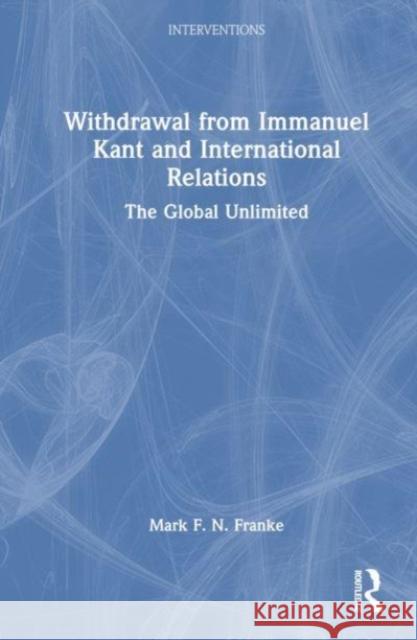Withdrawal from Immanuel Kant and International Relations » książka
Withdrawal from Immanuel Kant and International Relations
ISBN-13: 9781032591827 / Angielski / Twarda / 2023 / 294 str.
Withdrawal from Immanuel Kant and International Relations
ISBN-13: 9781032591827 / Angielski / Twarda / 2023 / 294 str.
(netto: 711,95 VAT: 5%)
Najniższa cena z 30 dni: 654,86
ok. 30 dni roboczych.
Darmowa dostawa!
This book shows how the flawed orientation forming Immanuel Kant’s philosophical project is the same from which the discipline of International Relations (IR) becomes possible and appears necessary.
Tracing how core problems in Kant’s thought are inescapably reproduced in IR, this book demonstrates that constructive critique of IR is impossible through mere challenge to its Kantian traditions. It argues that confrontation with the Kantian character of IR demands fundamental withdrawal from their shared aims. Investigating the global limits inherent to epistemological and ontological commitments of Kant’s writings and IR, this interdisciplinary study interrogates the racism, sexism, coloniality, white male privilege, and anthropocentricism of both as sites from which such withdrawal may be initiated. Following queer and feminist examinations of how Kant and IR discipline a joint orientation through sex, gender, and sexuality, it indicates how withdrawal is possible. And, considering how Anishinaabe legal tradition opens freedom beyond the restricting horizons of Kant and IR, this book contemplates withdrawal from both as leading to a global unlimited.
An essential text for advanced undergraduate and graduate studies, this book will also be of strong interest to those studying the thinking and writings of Kant, neo- and post-Kantian scholarship, and IR theory.
This book shows how the flawed orientation forming Immanuel Kant's philosophical project is the same from which the discipline of International Relations (IR) becomes possible and appears necessary.











